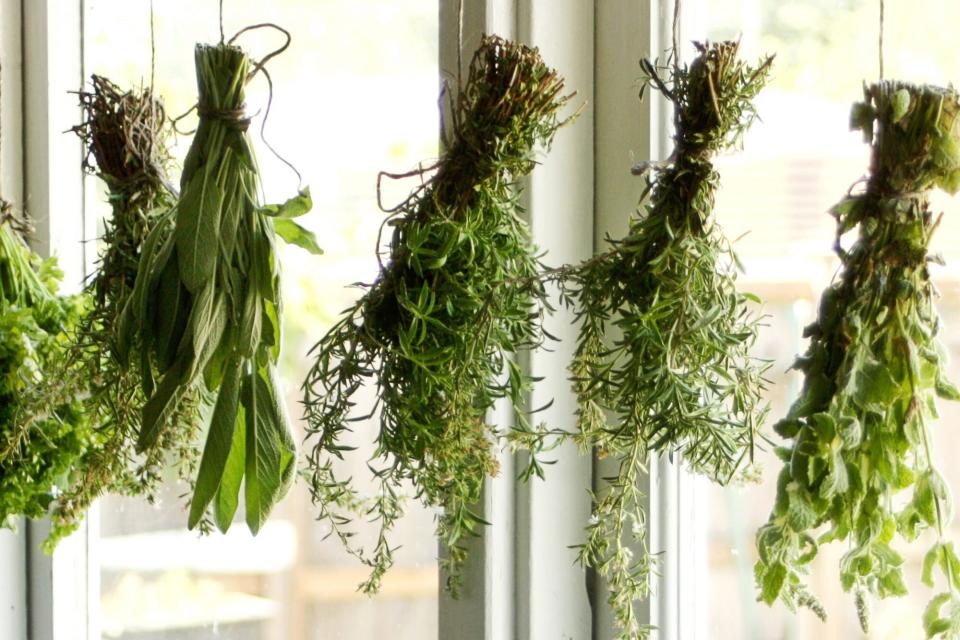How to Dry the Herbs You've Grown in Your Garden, on the Patio, or in a Window Box
Fresh herbs are essential to summer cooking. Even gardeners with a humble window box of parsley, rosemary, and basil quickly learn that these herbs are enough to make even simple dishes really shine without too much fuss. But as fall approaches (and so does the first frost), how can you make the most of your herbs so nothing goes to waste?
Dried herbs are a pantry staple, and they're incredibly easy to make at home with whatever you have on hand. Woody, earthy dried herbs are the best for cooking with, as their flavors intensify and adds so much to poultry dishes, soups, stews, and braises. Oregano, thyme, rosemary, sage, and bay leaves are all options that dry well.
Tender herbs, while you may see them available dried in jars at the grocery store, are truly best when enjoyed fresh. When preserving herbs like basil, cilantro, chives, dill, parsley, and tarragon, freezing is the way to go to maintain their bright flavors. There are a few exceptions though, and that includes mint, lemon verbena, chamomile, lemon balm, and any other herbs you may want to steep and enjoy as herbal tea.

LindaMayK / Getty Images
Related: How to Make Pesto with Herbs Other Than Basil
Time-honored experts such as the Farmer's Almanac suggest that it's best to harvest your herbs just after the morning dew has evaporated. If you find the herbs still have some moisture on them, lay them in the sun just until they dry off completely. Brush off any visible dirt but avoid rinsing them—any excess moisture could make the herbs more at risk of molding.
We like to store our herbs in small bunches to dry. We hang them upside down and out of direct sunlight while they dry; it's functional and adds a nice decorative touch in the kitchen. Alternatively, you can spread the herbs out on a paper towel lined wire rack in a cool dry spot. It will take a week or two for herbs to dry completely, depending on the environment of your kitchen. If you have a dehydrator that dries at a very low temperature, this is also an option, but the oven should be avoided as the oils in the herbs begin to evaporate at about 85 degrees.
Once the herbs are thoroughly dried, strip their leaves from the stems and store in an airtight container in your pantry or another cool dark place. Make sure to rub the herbs between your fingers to crumble them when you add them to your cooking, this will release their flavorful oils.

